Since Duncan Everett joined Noble Foods, he’s sold its posh pudding brand Gü and is going back to basics. But what exactly does that mean?
Duncan Everett hasn’t hung around since his arrival at Noble Foods last September. In May, he sold Gü Puds, its fast-growing luxury desserts brand, to put the focus squarely back on Noble’s core products.
Many will naturally assume this means eggs – Noble Foods is best known for its Happy Egg Co – but it’s also one of the UK’s largest animal feed producers, and the two businesses “have equal merit and equal opportunity to grow, develop and thrive”, Everett insists.
Gü, by contrast, was not a strategic fit. Acquired in 2010 as a diversification play, sales in 2020 rose 24% last year to £60m. “It’s a brilliant brand and a fantastic business, but it’s fundamentally important you focus on the things you’re best at, and do them even better.”
“It is of fundamental importance you focus on the things you’re great at and do them even better”
In short, Everett is convinced that the £150m in the bank from the sale (to private equity firm Exponent) can be better invested elsewhere.
So who is Everett? How did he come to join Noble? And what exactly is he planning to do with the money?
Family affair
Everett joined Noble Foods following a 25-year stint at Kerry Foods, the final three as CEO. Ironically, under his leadership, the Irish food giant became an increasingly diverse operation, boasting revenues of more than €3.6bn at its last count.
But, ready for a change, he met with Noble Foods owners Peter and Sarah Dean. The father and daughter team had taken Noble back into family ownership after the retirement of co-owner Michael Kent in 2019. “They were looking for somebody to help develop a long-term strategy for the business, to ensure it thrives and is fit to pass down to the next generation,” he says. “I was excited by that.”
A major Covid outbreak at Noble’s largest packing centre near Birmingham last December was “far more challenging than I would have liked in the first few months”, forcing the business to reopen a mothballed site (Everett even joined other volunteers packing eggs).
But after “a considerable time” spent looking at the direction of the business, he concluded that Noble’s future lay in its roots as a branded but fundamentally farming-based business.
“The sale gives us the firepower to do what we need to, invest and acquire closer to our core and focus around this area of nutrition – for people and animals.”
Snapshot
Name: Duncan Everett
Age: 49
Job: CEO, Noble Foods
Family: Born in Windsor, lives with wife Sara and their two boys aged 11 and 13. Now lives in Ascot
Potted CV: Studied economics at Nottingham University. Joined Kerry Foods in 1995 as a graduate trainee. Progressed through the business to become a finance manager in 1998 and FD in 2001, before being appointed CFO in 2005 and MD in January 2016. Became CEO of Kerry Foods in September 2017, and left in July 2020. Joined Noble Foods as CEO in September 2020
Other interests: Keeping fit, classic cars and motorsport. Also likes watching films with the family and reading. “The last great book I read was The Tattooist of Auschwitz by Heather Morris – a fantastic read.”
Death row meal: “I should probably say something egg-related but if it really was my last meal, it would have to be a curry!”
On the animal feed side, Everett identifies “exciting” opportunities and has “clear plans of how we will invest and how we will acquire in that space”, though he’s coy about details.
One obvious option is to develop an alternative feed. In October, rival egg producer Stonegate unveiled Respectful, the UK’s first carbon-neutral egg brand – which eschews soya feed in favour of locally-sourced feed based on field beans.
Everett “congratulates them” for that innovation. “The challenge is scaling it”, he adds. But he admits that Noble is “trialling” its own alternative, mindful that “from a sustainability perspective, diet represents 80% of the egg supply chain’s carbon. So, the environmental footprint is driven by what you feed the bird. You have to take that seriously.”
River action
Environmentalists would clearly welcome soy reductions given its links to destructive deforestation around the world, but Noble’s environmental responsibilities also apply closer to home.
River Action, a campaign group, wrote to Everett this year over concerns that an increasing number of free-range poultry farms along the River Wye were seriously damaging the local environment.
Chicken manure contains very high phosphate levels and has been linked to dense algae blooms suffocating the river. Sixty per cent of the Wye is now in ecological crisis, according to Natural Resources Wales.
River Action claims there are around 100 intensive poultry units in the River Wye catchment area, of which about half are operated by Noble Foods. A letter to Everett in September warned “unless immediate and meaningful remedial action is taken, the Wye ecosystem will suffer irreversible damage and this iconic British river will simply die”.
Avara Foods, another supplier in the region, recently admitted to its role in the pollution.
Everett insists Noble Foods “genuinely take our responsibilities seriously and are working really hard and collaboratively with other forms of agriculture in the area to solve the problem. We are a relatively small part of the problem but we are engaging. We will make a difference and are already making a difference.”
He also points out that Noble is planting at least 10,000 trees a year “from here on in”, while “all our energy comes from renewable sources”.
“Barn provides the animal welfare and gives shoppers choice. It’s important shoppers have an entry-level egg”
As to the popularity of its eggs, Everett vows to “grow our brands and stay ahead on animal welfare”. Neither is easy amid fierce cost inflation pressure, but Noble is “well on track” for the sector’s transition to cage-free systems by 2025. He favours a move towards barn eggs in which hens are raised entirely inside, produce a similar volume of eggs to caged, and usually at little added cost. “About 20% of egg is bought on price,” he says. “Barn provides the animal welfare and gives shoppers choice. I can’t tell you whether it’ll be here in 10 years’ time, but it’s important shoppers have an entry-level egg.”
He’s also backing processed eggs to deliver significant growth “by adding value to egg and getting it into more consumer occasions”. As well as its liquid egg-based Great British Egg Co brand for the foodservice sector, there are also liquid products available under the Happy Egg brand, including a liquid egg white line and a scrambled egg mix.
If Noble is to succeed commercially, there is another trend it cannot ignore: plant-based. Everett launched Noble’s first foray into the sector this year with Crackd, a pea-based egg replacement that claimed to be the UK’s first liquid vegan egg, in a joint venture with Bingham & Jones. There are now plans for “version two” in the new year, which Everett believes will be the “most versatile egg replacer in the world”.
But at its core, Noble is a farming business and he won’t lose sight of it. “Our producers are critically and fundamentally important to us. We work extremely hard with them to ensure this works as an industry for all of us,” he adds. “We are focused on being the best egg supplier in the UK, the best in terms of quality, the best in terms of service and the best in terms of consumer insight.”








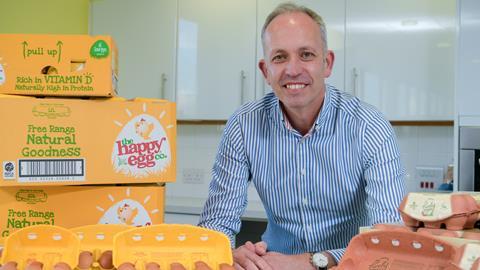


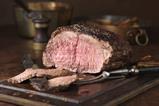


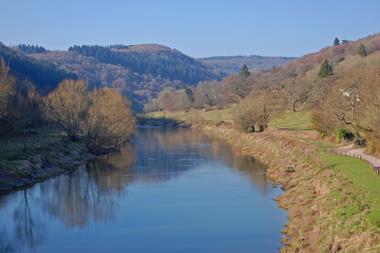
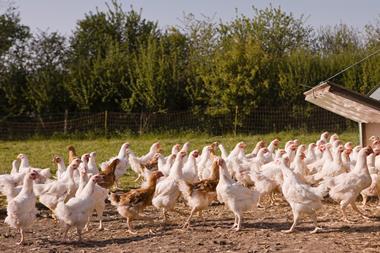
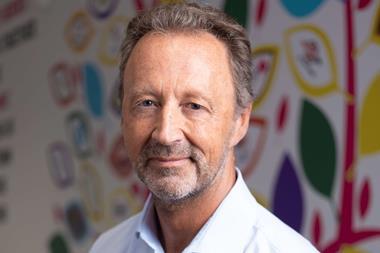
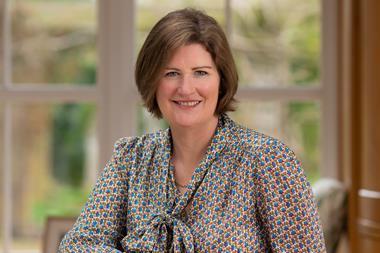
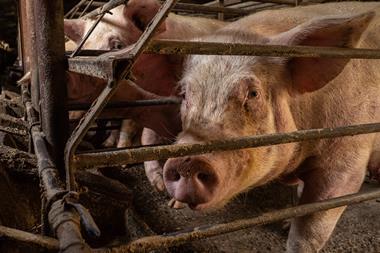

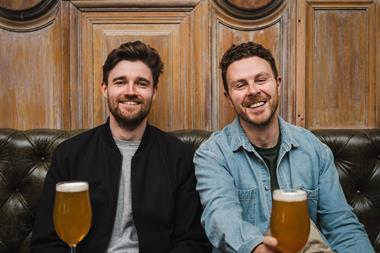
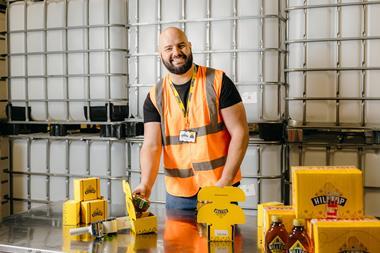
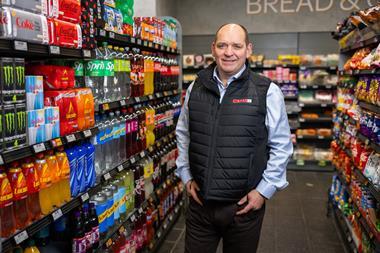
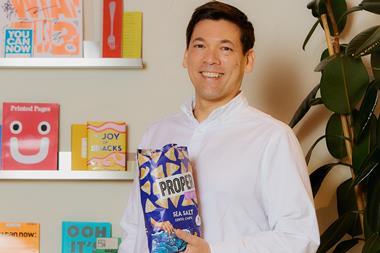
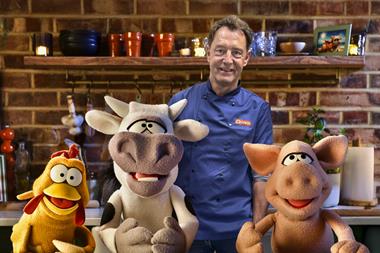
No comments yet